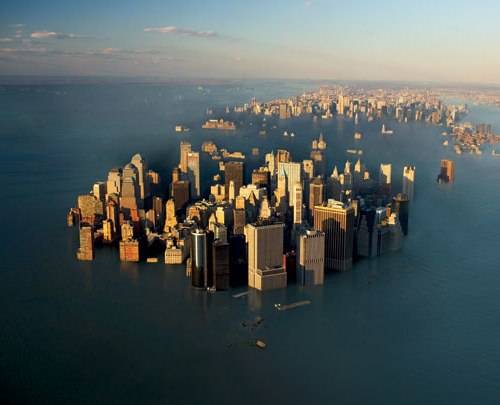Forecasting has a spotty history; spectacularly successful for the few but disastrous for many, and opining on the validity of forecasts is arguably the most odiously subjective science of all.
But global warming is occurring, so we have to, don’t we?
We can say that CO2 is a greenhouse gas with measurable effects on atmospheric temperature, that it’s concentration at around 400 PPM is the highest our planet has seen in the last four ice-age cycles and quite possibly for 20 million years, and that we’ve pretty much done it all by ourselves.
We’ve also killed off thousands of species, created deserts, drained water-tables, and polluted oceans, and we don’t know the long term effects of that, either.
What the Science says
If you read the IPCC 5th Assessment on Climate Change at https://www.ipcc.ch/report/ar5/wg1/, which is almost certainly the best science we have on the subject, you can’t escape the conclusion that things could get seriously unpleasant in the next 100 years.
The range of scenarios considered likely includes a surface temperature rise of up to 5°C by 2100. That’s probably enough to cause the Greenland icecap to melt and raise sea level by 7 metres.
It also tells us that, while we are pushing up the atmospheric CO2 level at an unprecedented rate, it would take a thousand years for it to start to come down again, even if we stopped emitting altogether. That’s a rather unforgiving thought, and it doesn’t consider the acceleration effect of any neat tricks played on us by random natural catastrophes: major volcanic eruptions, uncontrollable forest fires, impacts by rogue asteroids and the like.
Global Collaboration? Really?
What would it take to get us to shelve personal and national interest to ensure that our habitat remains viable? Extinction of 95% of the population? An alien threat?
And supposing stabilisation of global emissions comes too late or is not enough – where is the corrective climate engineering going to come from?
Our track record of dealing with great human tragedies amounts mainly to planting large rocks with names on them, afterwards.
Not good enough.
We’ll have to engage with this one before its social and political consequences make us unable or unwilling to collaborate effectively. If we don’t, someone else might be planting the rocks.
Contemporary Philosophers, stop looking backwards and start looking forwards!
Prometheus

